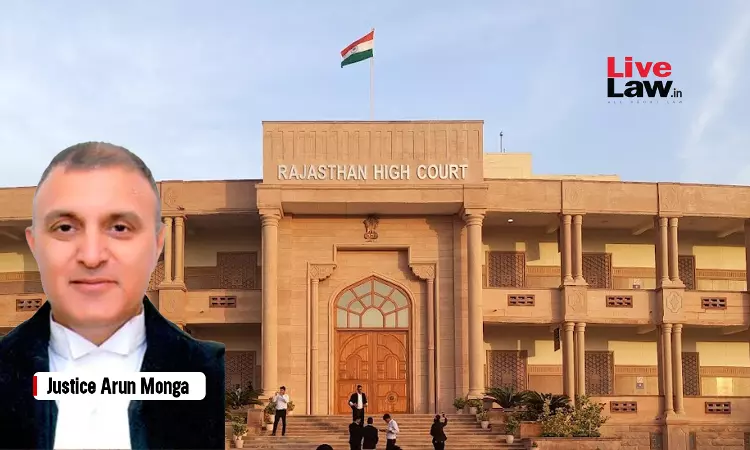- Home
- /
- High Courts
- /
- Rajasthan High Court
- /
- Rajasthan Service Rules | High...
Rajasthan Service Rules | High Court Lays Down Guidelines For Issuing 'Awaiting Posting Orders', Says Reasons Must Be Conveyed To Employees
Nupur Agrawal
5 May 2025 11:05 AM IST
While hearing a bunch of petitions by government employees who were put under the category of “Awaiting Posting Orders” without assigning or conveying any reasons, the bench of Justice Arun Monga at the Rajasthan High Court issued the following guidelines:1) Purpose and Justification of APOs a. To be issued based on administrative necessity or public interest and not as a punitive...
While hearing a bunch of petitions by government employees who were put under the category of “Awaiting Posting Orders” without assigning or conveying any reasons, the bench of Justice Arun Monga at the Rajasthan High Court issued the following guidelines:
1) Purpose and Justification of APOs
a. To be issued based on administrative necessity or public interest and not as a punitive measure.
b. Reason for placing an employee under APO to be explicitly stated in writing.
c. APO not to be used as a substitute or ruse for disciplinary action.
2) Conditions for issuing APO
a. APOs usually to be passed under the circumstances enumerated in Rule 25-A of the Rajasthan Service Rules, 1951 (“the Rules”).
b. Circumstances mentioned in Rule 25-A are illustrative, but any other condition proposed to be invoked must align with similar administrative necessity.
3) Limitation and Restrictions
a. APOs cannot be used to circumvent Rule 13 of the Rajasthan Civil Services (Classification, Control & Appeal) Rules, 1958, which governs suspension.
b. APOs should not exceed 30 days unless approved by the Finance Department with valid justification.
c. Prolonged APO Status without proper cause is misuse of authority.
4) Administrative Accountability
a. Reason for APO order to the concerned employee/official must be conveyed.
b. Ensuring timely issuance of future posting orders to prevent unnecessary financial burden on the government.
c. APO orders that amount to de facto suspension or serve as a means to delay the proposed disciplinary action to be avoided
It was the case of the petitioners that despite their commendable service records, they were unexpectedly placed under APOs which were passed in hast, either due to political interference or for other malafide reasons, without proper application of mind.
On the contrary, the State argued that the circumstances to issue APO provided under Rule 25-A of the Rules was illustrative, and the APOs were issued in public interest and as per administrative requirements.
After hearing the contentions, the Court perused the historical development around legislative introduction and evolution of Rule 25-A that empowered the concerned authority to issue APOs, and framed the following questions to be answered,
“A. Whether, Rules i.e. 7(8)(b)(iii) read with Rule 25-A of the Rajasthan Service Rules, 1951 can be invoked in cases where in public interest it is felt that instead of placing an official under suspension, rather a lenient view be taken by simply withdrawing work from him by putting him in the category of 'Awaiting Posting Orders' until further decision is taken?; B. Whether placing the services of an employee/official under 'Awaiting Posting Orders' category is merely a euphemism to avoid passing an order of 'transfer' and/or a ruse to overcome the rigors of Rule-13 of Rajasthan Civil Services (Classification, Control &Appeal Rules, 1958 and/or to overreach the ban on the transfer orders, which may be /is imposed from time to time?”
The questions were answered by laying down the aforementioned guidelines. The State was directed to issue necessary administrative directions to all the HoDs/Administrative Secretaries, and other competent administrative officers to sensitize them about the guidelines.
In light of the guidelines, it was opined that since in none of the APOs the reasons were conveyed to the petitioners, all were set aside. Furthermore, it was highlighted that where the reasons conveyed were “contemplate or pending departmental action” or “dereliction of duty or receipt of complaint”, or headquarter was changed amounting to transfer, the same were also set aside.
Accordingly, the petitions were disposed of.
Title: Ganraj Bishnoi v State of Rajasthan & Ors.
Citation: 2025 LiveLaw (Raj) 166



